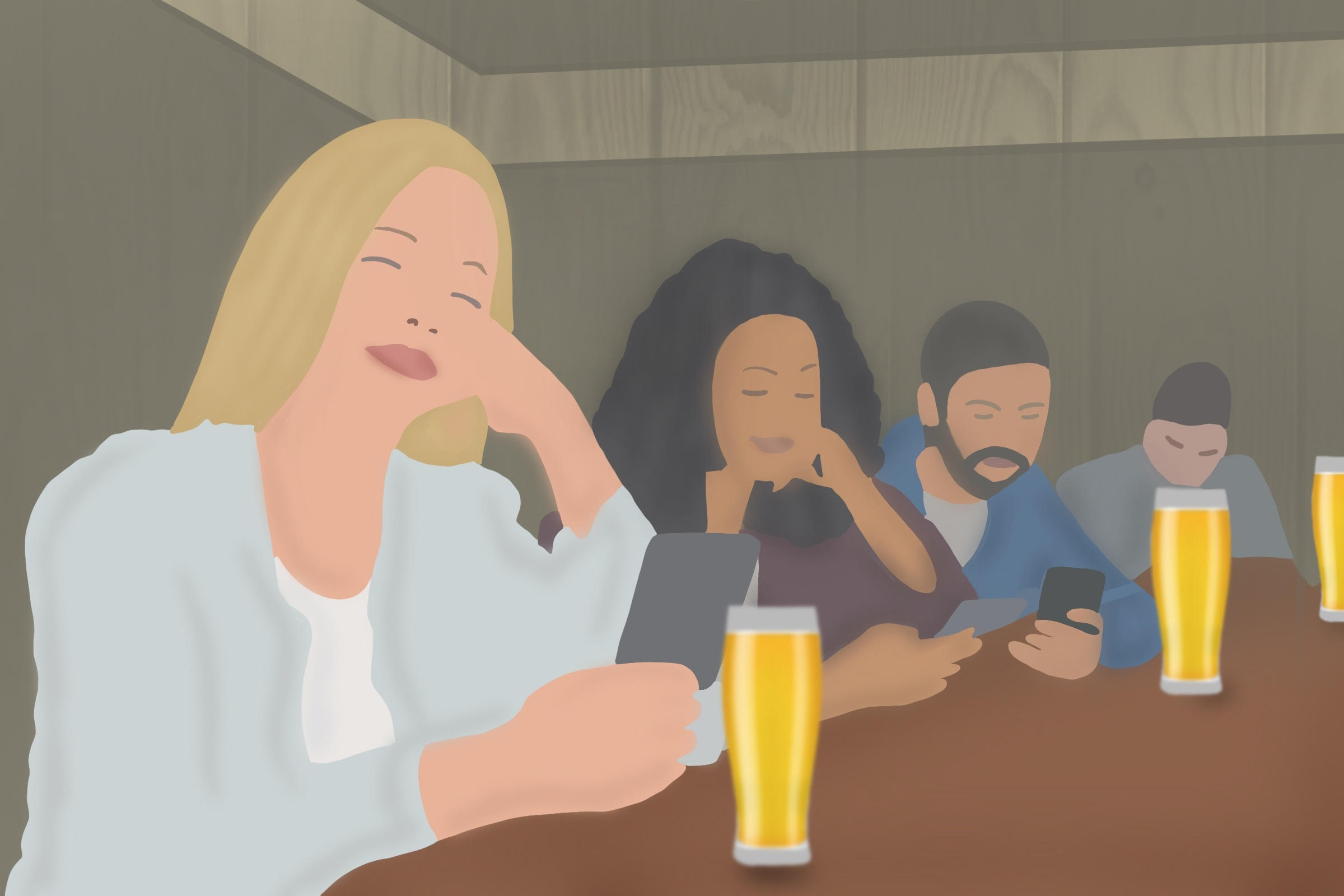So, why is this the case? The ultimate goal of online dating apps should be to function as a conduit in creating committed relationships, right? Wrong. The realm of online dating has become a multi-billion dollar industry — an industry that profits primarily off of user addiction, especially by keeping its users single. The way that the industry accomplishes this is twofold, relying on qualities of gamification and what psychologist Barry Schwartz refers to as the “paradox of choice.”
The presence of the choice paradox in online dating is perhaps best understood through the analogy of online shopping. Studies have shown that as shoppers are exposed to more options for potential purchases, they are paradoxically less likely to be satisfied with their ultimate decision. As our brains become inundated with a variety of choices, we often experience choice paralysis: An anxiety-induced state that prevents us from making a resounding decision.
On Tinder, the user’s experience of choice overload has become a frequent occurrence. In the emergence of what some are calling “serial swipers,” many users can be seen displaying strong hesitations to commit to a singular option due to fears of missing out on a potentially better one.
The infiltration of the choice paradox into the realm of relationships is especially dangerous. Unlike the case of online shopping, users aren’t choosing between products, they’re choosing between people. The resulting world of online dating has become a breeding ground for objectification, sexual harassment and insecurity, as choices are increasingly influenced by abundance and appearances rather than genuine compatibility.
The instant gratification offered by each ‘match’ causes the idea of exclusivity to appear unsettling, with many individuals remaining addicted to these apps even in committed relationships. Specifically, 30% of Tinder users are married, and another 12% are in relationships. Because of this, the online dating world has become a hotbed for cheating and noncommittal sex. Users find themselves immersed in an endless, twisted game, where matches and hookups function as points to keep score.



I made a new account in 2022, did 1 or 2 dates a month for a bit. Although I have not been trying as hard, I haven't been on a date with a new person since November. I think the new user boost (and paid boosts) are much more powerful than they used to be, which means established accounts get less visibility.
deleted by creator
Long-standing paid accounts and users who hadn't recently paid were relegated to the same bucket generally, but I think OKCupid (at that time at least) let users message each other for free so if that's still true it's probably a much better alternative to Tinder which never let you do that as I recall. (edit: actually I wouldn't be shocked if they just hide messages from certain users to other users entirely, as I recall they were literally showing unpaid user profiles to people on the other side of the planet or fabricating likes entirely to get people to pay for it, to the point someone might have "30 likes" within a day of their payment lapsing, renew, and only see one or zero)
I would assume whatever Tinder did is what OKCupid did while I knew someone who worked there since Match owned both by that time. New accounts and newly paid accounts were the only way for men's profiles to be shown to the top 50% of profiles (based on swipes no generated by spam swipers or something to that effect).
IIRC, tinder has never let you message people before matching but once you do there's no restrictions. I've used Google Play credits on a few apps and they're definitely doing what you describe with fake likes. In particular, Tinder shows "18 people liked you" but that number does not go down when I swipe left on someone who liked me (and it plays the "you missed a match" microtransaction thing).
holy shit lol
They love to fluff it up by saying "Hey look, 18 people liked you! We know you didn't like any of them, but they liked you so that counts!"